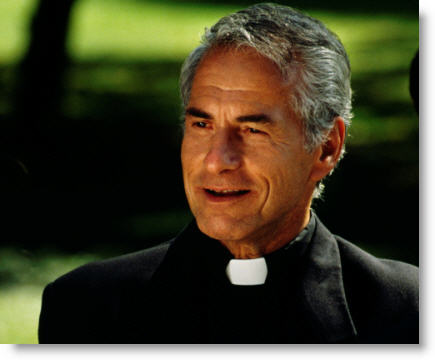Religious-Based Senior Care
Religion becomes more important as we age, as the end of life becomes real and less of an abstraction. One's religion helps them cope with aging and the physical illness and mental coping that comes with it.
Intro To All Forms Of Senior Living
What Is Assisted Living?
How to Select A Nursing Home
Is Home Care Right For Me?
If you have faith, you're a believer in its power. It makes sense you would want religious based senior care.
Religious-based senior care options are located throughout the country from those specializing in Catholicism to Judaism to Lutheran to non-denominational. As we'll see, the older we get, the more important religion becomes.
Religion HelpsDoes religion help seniors cope with aging? Yes, say numerous studies.
- In a Duke University study of 542 medical patients over 60, religious attendance was associated with less medical illness burden. Religious attendance was also related to lower depressive symptoms, although the association weakened when other co-variates were controlled.
- A University of Missouri-Columbia study found that religion is a "coping mechanism for persons with chronic disabilities such as traumatic brain injury, spinal cord injury, stroke and arthritis."
- "About 76% of physicians believe that religion and spirituality helps patients cope, 74% believe that it gives patients a positive state of mind and 55% report that it provides emotional and practical support through religious community," said a University of Chicago survey of 2,000 U.S. physicians.
- A paper in the journal Counseling, Psychotherapy, and Health that studied "the research that identifies a relationship between religion and health" among seniors concluded that "for some religion can provide a means of coping with the challenges that accompany aging, such as chronic pain, isolation, dependence, and disability."
- "A person's religious or spiritual commitment might be crucial to coping with the prospect of death and dying because each provides a sense of meaning for suffering and loss, particularly at the end of life:" A University of Florida study on the role religion for hospice patients and healthy adults.
Religious Senior CareIn senior care facilities that emphasize a certain faith, the services are the same that you would find in a more secular facility. The biggest difference is that staff are generally trained in aspects of faith or share that faith. Often, staff will read the Bible to residents and pray with them.

Religious-based senior care is usually affiliated with area churches who provide volunteers to the facility in the form of companion caregivers, ministers, Bible study leaders, and other faith-based roles.
In-home care facilities can also specialize in religion.
Some other areas of focus include:
- Pastoral visits
- End of life issues
- Different religious traditions respected
- Bereavement support
- Church-related field trips
- Indoor chapels
- Regular faith services
Here are the missions of some of the religious-based facilities around the country:
- "Christian Care's spiritual foundation continues to be a significant characteristic in its day to day operation and is reflected in our mission. We are motivated by ‘Christian love' and we ‘strive to provide quality and responsive senior housing, hospitality and healthcare services.'"
- "… to provide our community with a retirement facility whose philosophy is based upon Christian principles: providing quality healthcare; clean, comfortable, attractive surroundings; a caring atmosphere; a feeling of love and security…"
- "…to enhance the quality of life for seniors and their families by providing the personal care, compassion, and spiritual encouragement they need and deserve in the comfort and familiarity of their own home in a way that is pleasing to God."
Religious-Based HospitalsThe difference between religious-based hospitals and secular ones is that religion and healing go hand-in-hand in the former. Baptist, Catholic, Jewish, or other faiths have chaplains, pastors, and Rabbis on staff to meet the spiritual and emotional needs of patients just as medical staff meet the physical healing needs of their patients.
Employees of faith-based hospitals "are more likely," as one study put it, "to see the whole person" and thus address people in the context of all of their human, spiritual, and social needs."
Religious vs. Secular CareA Rockefeller Institute of Government study found the following when comparing faith-based to secular care organizations:
- "Regarding patient outcomes, performance of home health agencies with a 'religious affiliation' was generally better than all other types of providers…"
- "Church-related nursing homes had, on average fewer deficiencies (e.g., nutrition and diet deficiencies) than the average for all other types of nursing homes."
- "Church-related nursing homes had 25% fewer inspection deficiencies than all other types of nursing homes."
SummaryThere is strong evidence that people of faith are better prepared for aging than their secular counterparts. It makes sense that they would want religious-based senior care when the time comes.
To find religious-based senior care in your area, search the assistedseniorliving.net database. For more information, contact us using the fields at the top.

